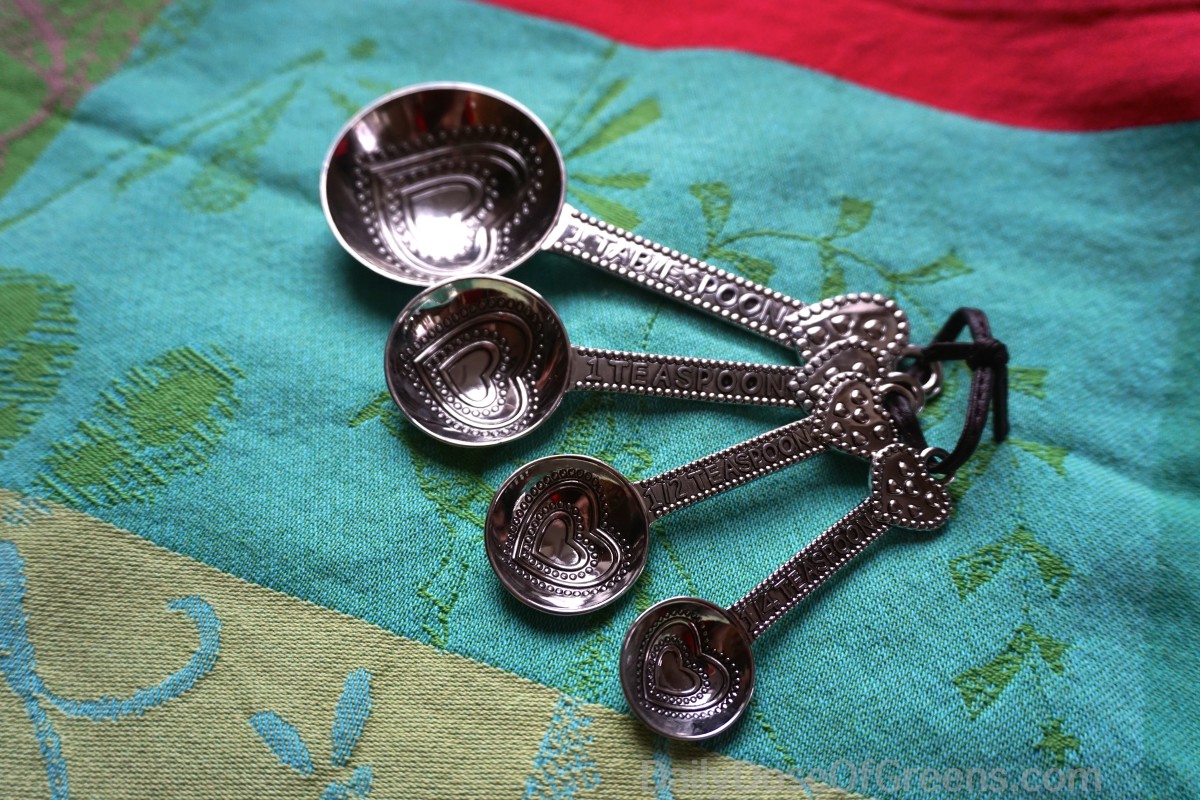While studying to become a dietitian, I had to take a science of cooking class so I could learn how to be proficient in the kitchen. I had been cooking for myself for a few years at that point, yet there were a few measurement conversions that I had never learned. Once I learned them, I realized how much easier cooking could be!
Today I read a recipe that called for 3 teaspoons of two separate ingredients. Why instruct people to measure out 3 teaspoons when you could just write, “1 Tablespoon?” Hence my inspiration for this short post.
5 Basic Cooking Conversions Everyone Should Know
1. As stated above, 1 Tablespoon = 3 teaspoons. I use this one almost daily when coming up with recipes, but it also comes in handy when doubling or halving recipes.
2. 1 cup = 8 fluid ounces. You may not use this one as often, but it’s good to know if you’re given the ounces of a liquid to add to a recipe. For example, if told to add 2 ounces of lemon juice, simple math tells you to add 1/4 cup.
3. 1 cup = 16 Tablespoons. This one is especially helpful when doubling recipes. If a recipe calls for 2 Tablespoons of honey and you’re doubling the recipe, save yourself the trouble of measuring out 4 Tablespoons by just pouring out 1/4 cup.
4. 1 pound = 16 ounces (= 454 grams). My hope is that you knew this one already, but just in case, here it is. Sometimes a recipe will call for 2 pounds of potatoes and your scale will be in ounces. Well now you know you need 32 ounces of potatoes. The grams is just a bonus conversion. Also, 1 ounce = 28 grams.
5. 1 cup = 240 milliliters (and 1 Tablespoon = 15 ml). You may never use this one, but who knows? You might stumble upon a recipe that uses the metric system (You: “Add 1 liter of vegetable broth? Why that’s 4.2 cups, of course!”).
I understand that everyone is at different levels, so I decided to share these with all of you beginners out there. You can easily print out a giant conversions chart, but the time spent referring to it every time you cook is time wasted. Commit these conversions to memory, and you will simplify your own recipes and shorten your time in the kitchen.
Happy cooking! 🙂




Leave a Reply